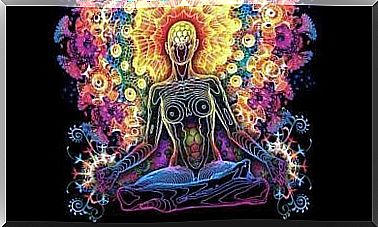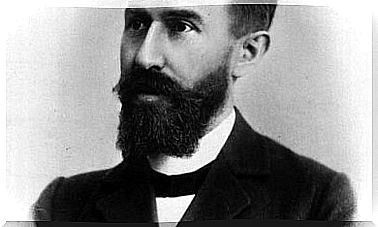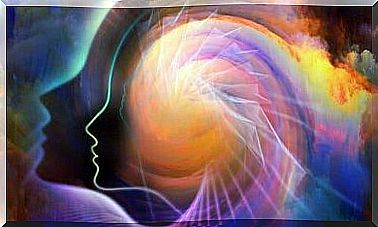Learn The Best Exercises And Activities To Work Your Way Through Your Emotions
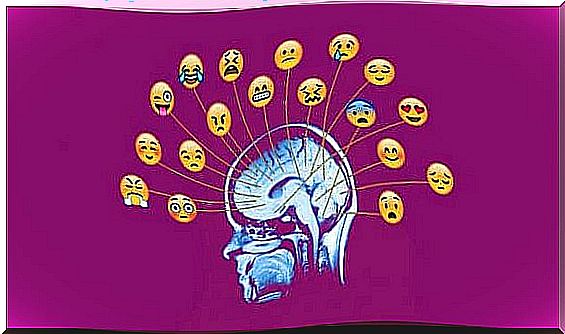
Your emotions are a fundamental part of the development of human experiences. They are our way of expressing ourselves, and sometimes they are more important than words.
If words are not said with the right feelings, people will probably not believe them. When we express something with emotions, we usually use facial expressions, images, metaphors and voices.
They help us to understand and express much more than words themselves, but only when the emotions match the words. There is one reason why working with our emotions is extremely important.
The biological design that commands our emotional spectrum has been with us for over fifty thousand generations. In fact, it has contributed to our survival as a species.
Each of us is programmed with automatic reactions, or biological predispositions for action. But the things we go through in life serve as models for our responses to emotional stimuli. And that’s what we need to work on to achieve emotional balance.
If we think a little about how important our emotions are, we quickly see the impact they have had on our lives. Many times without us realizing it.
It is important to recognize how our state of mind affects our behavior. And to understand our skills and weaknesses. We may be surprised at how little we know about ourselves.
Do our emotions control us?
When we are emotionally intelligent individuals, we let things affect us, but not control us. Emotional self-control allows us to process our emotions or emotions so that they do not decide for us.
It is no wonder to get angry at our partner, friends, family or colleagues. But if we were slaves to emotions, we would constantly act irresponsibly or impulsively.
And we may regret it later. If we do not know where our emotions come from or why we experience them, it can be very confusing.
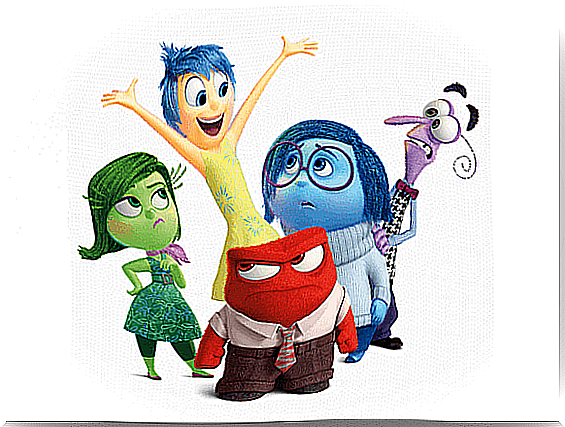
Some say that nothing makes us feel as human as our emotions. Very human and very addicted. When a powerful emotion floods us, it can fill our entire mind.
If that feeling is unwanted, there is only one quick way to get it out of our minds. Another feeling, another stronger feeling, incompatible with the one we are trying to replace.
Controlling our emotions does not exactly consist of rational victories or orders. Nor does it consist of oppression or control over the emotions themselves.
It consists of adapting or connecting our emotions with our reasoning. There is a balance between different mental processes.
Very emotionally intelligent people know that processing and working with their emotions does not mean that they suppress them. But they also know that when we are with other people, we need to keep in mind how others interpret what we express. Balance is the key to our interaction.
So our emotions will not control us. We need to be aware of how human needs go far beyond physiological ones, such as food or water. There are also emotional needs.
Looking at this aspect of our own psychology will help us improve the “diagnoses” we give possible emotional conflicts.
This is why very emotionally intelligent people tend to reflect on how they feel. They also tend to be consistent with the conclusions they reach through reflection.
Using art to work your way through your emotions
Art, like all non-verbal expressions, encourages the exploration, expression and communication of things we are not aware of. Working with our emotions through art therapy improves the quality of human relationships because it focuses on the emotional factor.
This factor is important for every human being. It helps us to be more aware of darker aspects, and thus make a person’s development easier.
It is impossible for us to be rationally or linearly aware of any activity or information that surrounds us. When we drive, for example, most of our attention is focused on the main task of looking ahead and controlling the car.
But at the same time, unconsciously, we listen to the sound of the engine, change gears, and think about the past and the future.
To facilitate conscious thinking, there are three basic creative mechanisms for organizing information and experience.
These are: filtering, generalization and distortion. These mechanisms reduce information by prioritizing, excluding and making decisions. They are the basis of all learning.
The mechanisms that organize information are the basis for understanding where our emotions come from. If we only filter the negative information based on what is happening to us, these mechanisms will probably make us feel anxious.
On the other hand, if we filter more closely and make fewer generalizations in the personal sphere, it would be easier for us to feel healthy emotions. The negatives as much as the positives.
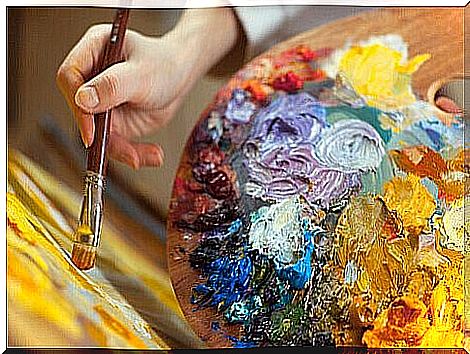
We empower our non-verbal communication skills through art. Art can help you express and convey your feelings. It makes it easier to reflect, communicate and possibly change behavior.
Art therapy uses art as a therapeutic outlet to improve psychological conditions. Especially those related to anxiety. Art can be a great outlet to channel it through.
But on top of the therapeutic effect it can have, art therapy is also a personal growth technique. It helps us with self-knowledge and emotional expression.
So, it is not necessary to have any kind of mental illness. You just have to feel the need to explore yourself through art, and start working through your emotions.
Art therapy trains and strengthens us by letting us:
- Express feelings that are difficult to talk about, and thus provide an outlet for communication.
- Get more access to express us orally.
- Increase our self-confidence and self-confidence.
How do we improve our emotional intelligence?
The idea of emotional intelligence gives us a glimpse of how it can be trained through routine. If emotional intelligence is our ability to successfully process and work through our emotions, and we vary the way they are manifested, we use the challenge for good.
Unlike IQ, which remains about the same throughout our lives, we can increase our emotional intelligence over time. We can and should learn to develop our emotional intelligence through the techniques that psychology offers.
Working through your emotions is not an easy task. But while it is difficult, it is not impossible. To improve our emotional intelligence and work our way through our emotions, we must be ready to experience all varieties.
Do not suppress a single one. If you ignore or suppress your emotions, you are ignoring important information that has a profound effect on the way you think and behave.
Techniques for developing and improving emotional intelligence:
- Observe your emotional reactions throughout the day. It is easy to write off the feelings we experience from day to day. But taking the time to recognize how things make you feel is important for emotional intelligence.
- Pay attention to your body. Instead of ignoring the physical manifestations of your emotions, start listening to them. Our minds and organs are not separate entities. They are very closely linked. You can increase your emotional intelligence by learning to interpret the signals your body uses to tell you about your emotions.
- Do not judge your own feelings. All our emotions are valid, even the negative ones. If we judge our emotions, we hinder our ability to feel things fully. It will make it harder for us to use our emotions in a positive way. All our emotions are a new piece of useful information. Without them, we would have no idea how to react properly.
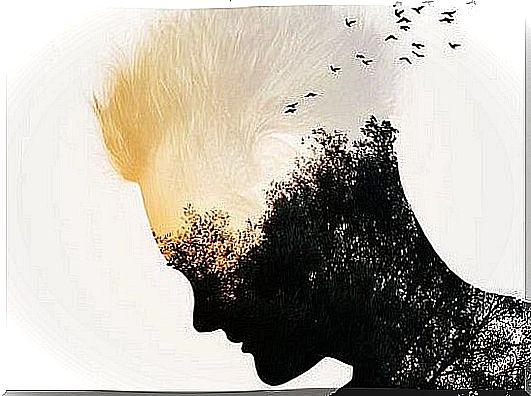
- Being open goes hand in hand with emotional intelligence. A closed mind tends to be an indicator of low emotional intelligence. When our thoughts are opened through Indian understanding and reflection, it is easier to face conflicts in a calm and safe way.
- Observe the effect you have on other people. To increase your emotional intelligence, understanding the feelings of others is half the battle. We must also understand the effect we have on other people.
- Lower your stress levels by raising your emotional intelligence. Stress is a broad term that refers to the anxiety we feel due to a wide range of emotions. Stress triggers a large amount of things, which can make an everyday problem a big problem. If we are very stressed, it will be difficult for us to behave the way we want.
- Empathy. Being a more active listener and paying attention to what others are saying will help us understand their feelings. When we are able to use this information to make decisions and improve our relationships, our emotional intelligence is healthy.
Emotional intelligence means more than just controlling your emotions and working your way through your emotions. It also involves the ability to control ourselves.
Bibliography
Antunes, C. (2004). Games for estimating multiple intelligences (Vol. 5). Narcea Ediciones.
Arteterapia, AP, & para la Inclusion Social, EA (2016). See, fool, imagine. Experiential therapist interventions with minor and interdisciplinary interventions. Artotherapy , 11 , 221-222.
Bassols, M. (2006). Art therapy, an accompaniment to creation and transformation. Art therapy. Art Therapy and Artistic Education Papers for Social Inclusion , 1 , 19-25.
Duncan, N. (2007). Work with the Emotions in Art Therapy / Art Therapy and emotions. Artotherapy , 2 , 39-49.
Fernández, ER (2007). Applications of Art Therapy in a room as a means of prevention for the development of self-esteem and the beginning of positive social relations: “Me siento vivo y convivo” / “Art Therapy applications in the classroom as a preventive measure using artistic manifestations for the self esteem development and the fostering of positive social relationships: “I FEEL ALIVE AND CO LIVE”. Artotherapy , 2 , 275-291.
Gardner, H. (1998). Frames of Mind: The Theory of Multiple Intelligences . Fontana Press
Goleman, D. (1995). Emotional Intelligence: Why It Can Matter More Than IQ Bantam Books.
Greenberg, L. (2000). Emotions: an internal guia. Oath. Descleé de Brouwer .
Problem-Solving Therapy: The Scientific Method of Making Decisions

